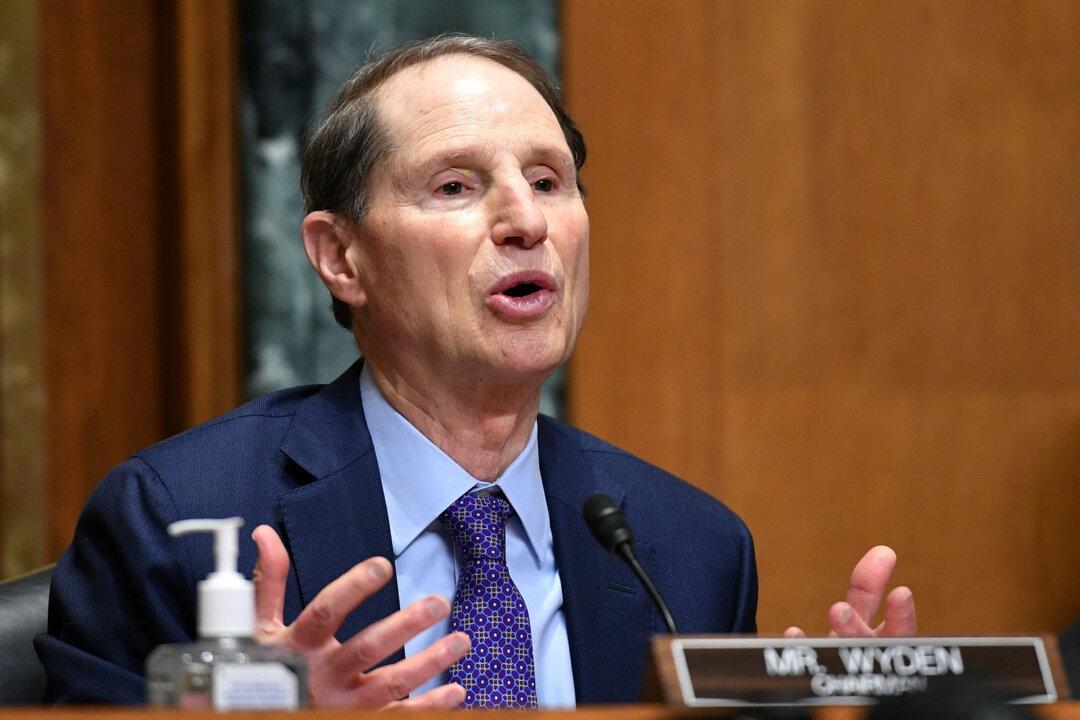Sen. Ron Wyden (D-Ore.) unveiled comprehensive reform legislation on Sept. 26 to add six justices to the U.S. Supreme Court, raising the total from the current nine members to 15.
The measure follows a bipartisan commission established by President Joe Biden found in late 2021 that Congress had authority to expand Supreme Court membership, and took no position on whether it should be done.





